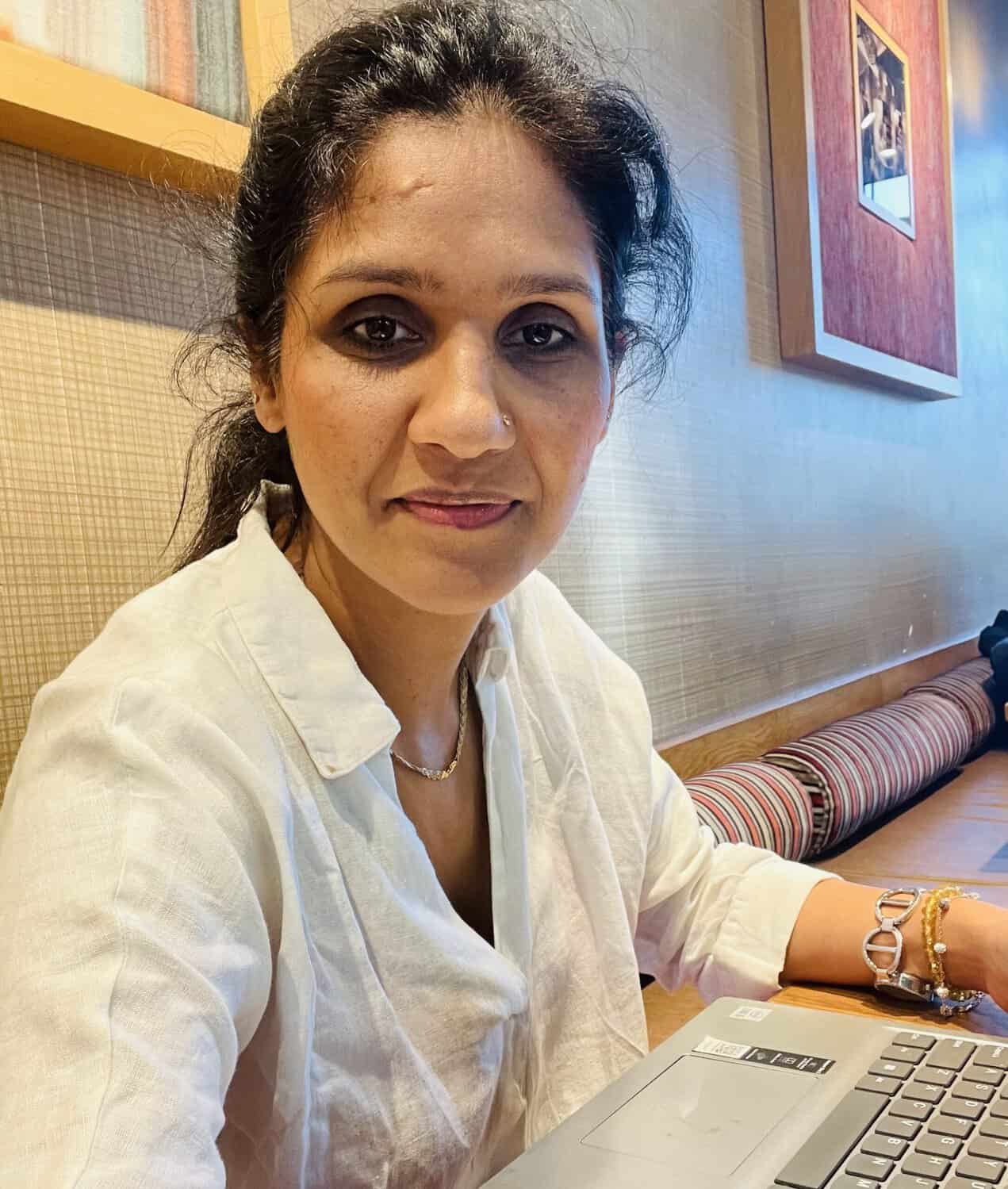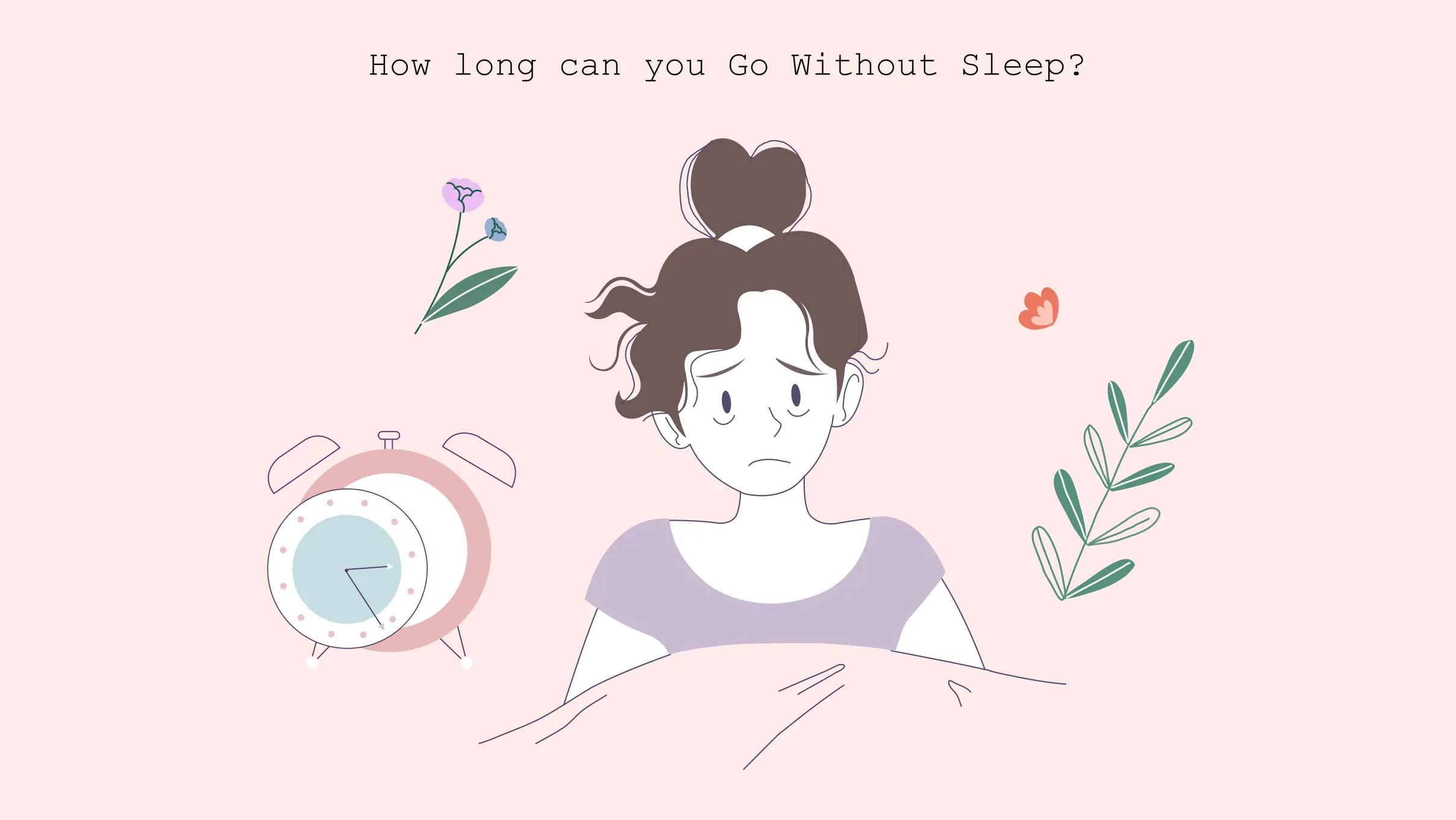How Long Can You Go Without Sleep
Written by

Medical reviewed by


In 1965, a 17-year-old high-school student named Randy Gardner set a world record for the longest time without sleep. As part of a science fair project, Gardner stayed awake for precisely 264 hours or 11 days. This remarkable achievement has become known as the longest recorded period of continuous wakefulness in documented history.
Though it was for an experiment done for a science fair, in the present world, getting perfect hours of sleep is indeed a matter of luck. A majority of us end up pulling all-nighters for straight 2 to 3 days for work or studies. But, without experimenting with how long you can go without sleep, you need to know ways to fight it. Let us dig into this article for more details.
How Long Can a Person Go Without Sleep
Generally, a person can stay awake for 3 to 4 nights until signs of hallucination appear. Here are the signs –
- Cognitive Impairment
- Irritability
- Delusions
- Paranoia
- Psychosis
You might feel relieved to have completed all your work by pulling an all-nighter, but your body isn’t. In fact, a 24 hours sleep deprivation might be quite detrimental to your body. Following is some information about how long you can stay awake without sleep.
What Happens After 24 Hours Without Sleep
Staying awake for 24 hours has become quite a regular thing for the majority of people. You end up working for several hours after your official working time, studying all night and day without sleeping, or attending to your ill child who might be suffering from extreme fever. No matter how common staying up for 24 hours is, it has some slight negative impacts on your health, if not immense.
Do you know?
According to studies, staying awake for 24 hours has been compared with having a blood alcohol concentration of 0.10%! And, this is higher than the legal limit to drive in many states. Furthermore, staying awake for 24 hours might lead to the following problems:
- Drowsiness
- Irritability
- Impaired decision-making
- Impaired Judgement
- Altered Judgement
- Memory Deficits
- Vision and hearing impairments
- Decreased hand-eye coordination
- Increased muscle tension
- Tremors
- Higher risk of accidents or near misses
If you are awake for 24 hours, get some sleep, and notice these issues fading away.
What Happens After 36 Hours Without Sleep
36 hours without sleep can be risky for an individual. The reason is that human bodies are functioned by the sleep-wake cycle that promotes the regulation of essential hormones like cortisol, insulin, and the human growth hormone. Now, if you are deprived of sleep for 36 hours, your body will cease to receive all these hormones. Sleep deprivation for 36 hours will result in changes in the following:
- Appetite
- Metabolism
- Temperature
- Mood
- Stress level
More serious health effects include
- Immense fatigue
- Hormonal imbalance
- Reduced motivation
- Risky decisions
- Inflexible reasoning
- Decreased attention
- Speech impairments
What Happens After 48 Hours Without Sleep
If you are awake for two long nights, you might already be facing difficulty staying awake. People who are awake for 48 hours might experience microsleeps or light sleep for around 30 seconds when their brain is in a sleeplike state. Once awake from a microsleep, you might feel confused or in a trance.
Awakeness for around 48 hours tends to disturb the immune system. The inflammatory markers in the body that guards and aim illnesses begin to circulate at greater levels. Certain research backs that the natural killer (NK) cell activity diminishes when sleep deprivation occurs. And, the aim of NK cells is to respond to health threats like bacteria or viruses on an immediate basis.
What Happens After 72 Hours Without Sleep
Awake for as long as 72 hours without sleep? You might dream of your cosy mattress where you are sleeping peacefully. There is a limited amount of people who tend to stay awake on their own even after 72 hours without sleep.
Three days without sleep can be really scary, it hinders your ability to think. For working professionals especially, it might pose a hindrance to the work since it negatively affects multitasking, memorising trivial details, and focusing on work altogether. It becomes quite a gruelling task to even finish the subtlest of works.
You might start having diverse emotional feelings resulting in irritation. From having a depressed mood to anxiety to paranoia, one can experience it all. In fact, according to research, it has been noted that people who didn’t sleep for more than 30 hours faced difficulty recognizing happy and sad reactions.
And lastly, if you are sleep deprived for way too many days, you will notice a prominent change in your perception. Hallucinations will start transpiring, and you will notice things that actually aren’t there. In this situation, illusions are quite common occurrences, and you might start viewing unreal things. One common sign of illusion is, noticing a sign and thinking it to be a person.
What is Sleep Deprivation
Sleep deprivation is a result of staying awake for a prolonged period of time leaving the body with a very little amount of sleep. The aftereffects of sleep deprivation can vary from one person to the other. Teenagers and children require more sleep as compared to adults as their brains are still in an underdeveloped and maturing stage. Therefore, if your child undergoes sleep deprivation, it might be more severe or durable.
Whereas, when adults undergo sleep deprivation, they might include the following issues:
- Fatigue and sleepiness during the day
- Concentration, alertness, and memory difficulties
- Limited coordination
- Irritability
- Mood swings
If sleep deprivation is a regular occurrence in a person’s life, they are prone to health conditions like obesity, diabetes, and also heart disease. Sleep deprivation might not sound serious but its long-term health conditions are quite serious. In fact, lagging behind on your sleep schedule with just a few hours of sleep might lead to poor coordination and focus and also a surge in stress level.
Effects of Sleep Deprivation
Sleep deprivation can be detrimental in numerous ways to the body. Deep sleep acts as a boon in reviving your skin from all possible health conditions. If you are someone who considers not getting proper sleep for a long time, you’re wrong on so many levels. It aggravates health issues like stress, impaired judgement, and so on.
The fundamental logic behind what causes sleep deprivation is the break in the 24-hour biological clock, also known as the circadian rhythm. The internal clock in your body functions by delivering signals to your body when it is time to sleep and when you need to be awake.
But, when you tend to stay awake for longer periods, the circadian rhythm ceases to work making you fatigued. Some of the common effects of acute sleep deprivation have been listed below.
- Drowsiness: sleep deprivation can be really scary as you might be unmindful while pursuing serious activities like driving. In fact, a study has shown that people who received 6 hours of less sleep a day were more likely to fall asleep while driving.
- Induced Stress: It is not always stress that causes people to experience sleepless nights but also the opposite. Inadequate sleep is often associated with stress, anxiety, mood instability, and similar problems.
Restrained Concentration and Focus: Sleep deprivation often leads to restrained alertness and inadequate attention level.
How Many Hours of Sleep Do You Need
Getting straight to the point, the sleeping hours of adults are quite different from that of babies. Check the below table to understand better.
| Age Group | Sleeping Hours |
| 0 to 3 months | 14 to 17 hours |
| 4 to 12 months | 12 to 16 hours (include naps) |
| 1 to 2 years | 11 to 14 hours (includes naps) |
| 3 to 5 years | 11 to 14 hours (includes naps) |
| 6 to 12 years | 9 to 12 hours |
| 13 to 18 years | 8 to 10 hours |
| 18 to 60 years | 7 – 7+ hours |
| 61 to 64 years | 7 – 9 hours |
| 65 years or more | 7 – 8 hours |
Sleep Hygiene Tips
To experience healthy sleep without disruption, you can follow the below steps.
- The bedroom needs to be dim, cosy, and comfy
- No intake of stimulants like caffeine or nicotine before bedtime
- Consistent sleep routine
- No mobile, TV, laptop, or other electronic devices before bedtime since it emits blue light
- Indulge in relaxing activities like a warm bath, reading a good book, or some relaxation exercises
Conclusion
The article explains in a detailed way as to why it is never a good idea to deprive yourself of sleep, until and unless it’s an emergency. Pushing away sleep will immediately affect the circadian rhythm of the body leading to further health complications. You definitely don’t wish to undergo all of that, don’t you? Therefore, follow the sleep hygiene guidelines and sleep well.
FAQs
How long does it take to recover from sleep deprivation?
It might take a few days to even weeks to recover from sleep deprivation. In fact, just an hour’s sleep loss requires 4 days to recover.
How long does it take to recover from an all-nighter?
It generally takes a day or two to recover from an all-nighter.
What to do after a sleepless night?
Ensure that you follow a similar bedtime the next day, and also avoid napping the day after.
How to survive a day without sleep?
Sitting by the window or stepping outside, avoiding carbs and processed foods, and having balanced meals, are just some ways to survive a day without sleep.
Is 6 hours of sleep enough?
An adult needs around 7 to 9 hours of sleep every day to have a healthy lifestyle.
people like this article
Written by

Medical reviewed by

Read More About Sleep Deprivation
• 7 min read





